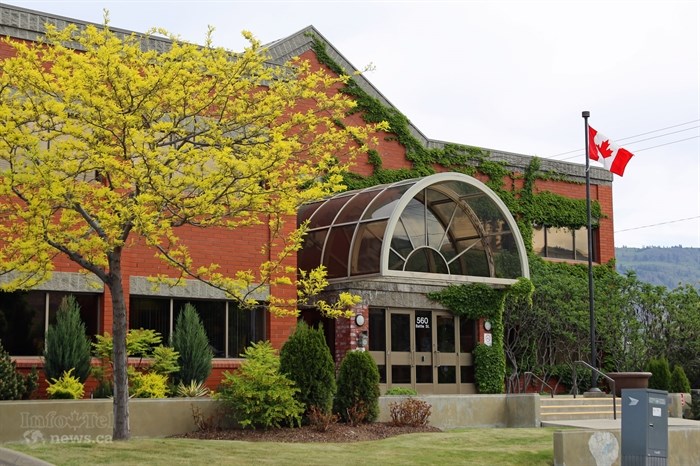
Kamloops RCMP detachment.
Image Credit: FILE PHOTO
August 01, 2017 - 9:00 PM
KAMLOOPS - In the past two weeks, police in Kamloops have been responding to a sharp increase in call volumes and that could be attributed to the influx of evacuees in the city.
At a quarterly meeting held in Kamloops yesterday, July 31, Kamloops RCMP Supt. Brad Mueller said there has been an average of a 10- to 15-per-cent increase in calls for RCMP service in the past two weeks.
He says some days that’s reaching 30 to 40 per cent, with many calls being attributed to vagrancy and nuisance complaints.
Mueller says the spike may be linked to a small percentage of marginalized people who have been evacuated due to wildfires in their areas.
With Kamloops being home to thousands of evacuees over the past few weeks, pressure has been put on available services in the community.
Mueller said in the past two weeks, there have been 110 calls for disturbances, compared to the same time period last year when 57 disturbance calls came in. Public intoxication has also increased to 34 compared to 29 in the same two-week period last year.
“In a 24-hour period we’ve been approaching 200 calls for service,” Mueller said. “If you look at our calls for service and average that out yearly, you’re probably around 115 to 120 (calls). Seasonally, we’re usually around 130 (calls) so we have seen significant increases.”
He says out of 192 total prisoners during the two-week period this year, 29 were believed to be evacuees.
Mueller, along with ASK Wellness director Bob Hughes and Interior Health manager Tara Mochizuki, expressed concerns about marginalized evacuees who may want to stay in Kamloops because of the services offered in the city.
“Indications are, through speaking with some of these individuals, speaking with probation is that some… of these individuals are very appreciative and recognize some of the services that we offer in this city, and (there are) indications that they may want to stay,” Mueller said.
Mochizuki agreed and said Kamloops is happy to support relocation plans, but community stakeholders like Interior Health are trying to support people in the short-term, not for them to stay permanently.
“We’re kind of maxed, I think, in terms of resources… an additional 10 per cent,” Mochizuki said.
Hughes echoed the sentiment of resources being maxed, but said officials have done everything they can to make sure marginalized people are set up for success in going back to their homes.
He said more than 50 people with complex issues like mental illness or substance abuse were housed in the Maverick Motel during the evacuation. ASK Wellness is currently renovating the motel into an affordable housing building.
To contact a reporter for this story, email Ashley Legassic or call 250-319-7494 or email the editor. You can also submit photos, videos or news tips to the newsroom and be entered to win a monthly prize draw.
We welcome your comments and opinions on our stories but play nice. We won't censor or delete comments unless they contain off-topic statements or links, unnecessary vulgarity, false facts, spam or obviously fake profiles. If you have any concerns about what you see in comments, email the editor in the link above.
News from © iNFOnews, 2017